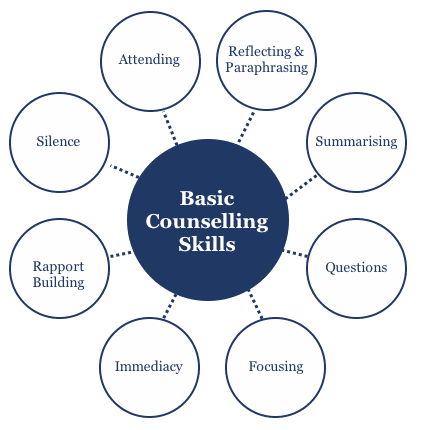The Importance of adhd counselling in Academic Success
A Comprehensive Guide to the Numerous Sorts Of Therapy and Their Effect
Therapy encompasses a variety of restorative strategies, each designed to meet special psychological health and wellness demands. From the structured methods of Cognitive-Behavioral Treatment to the compassionate nature of Person-Centered Treatment, these methods supply distinct pathways to personal growth. Household therapy and Dialectical Behavior modification give added structures for recovery, while team therapy cultivates community assistance. Understanding these diverse methods can brighten their extensive influence on individual well-being. What remains to be explored are the intricacies of each method.

Comprehending Cognitive-Behavioral Therapy (CBT)
Although many restorative strategies exist, Cognitive-Behavioral Therapy (CBT) stands apart as a result of its structured, ambitious nature. This form of treatment is based upon the premise that ideas, sensations, and habits are adjoined, and by changing unfavorable thought patterns, individuals can modify their emotional feedbacks and actions. CBT uses various strategies, such as cognitive restructuring, which helps customers determine and test distorted ideas. Behavioral activation urges engagement in enjoyable tasks to fight clinical depression.
Generally, CBT is a temporary therapy, frequently long-term in between 12 to 20 sessions, making it obtainable for those seeking quick outcomes. Its performance has actually been well-documented in treating stress and anxiety problems, depression, and various other psychological health issues. The therapist's function is to assist customers with workouts and research tasks, promoting self-awareness and advertising long-lasting coping methods. This sensible approach empowers people to take control of their psychological health, inevitably causing enhanced life contentment.
Discovering Person-Centered Therapy
Person-Centered Treatment, created by Carl Rogers, uses a different technique to Cognitive-Behavioral Therapy by highlighting the client's subjective experience. This restorative model prioritizes the person's point of view, promoting a setting of compassion, unconditional positive respect, and credibility. By enabling clients to explore their sensations and ideas without judgment, therapists assist in personal growth and self-discovery.
The core tenet of Person-Centered Therapy is the belief that people have the inherent ability for self-healing and individual advancement. In this setting, the therapist functions as a helpful guide rather than a directive authority, encouraging customers to take cost of their very own trip. This technique is especially effective for those grappling with concerns such as reduced self-worth, anxiousness, or anxiety, as it empowers them to face and comprehend their feelings. Eventually, Person-Centered Treatment cultivates a solid restorative alliance, promoting count on and openness essential for purposeful modification.
The Role of Household Therapy in Recovery
Family treatment serves as a vital element in the recovery process for people and their connections. This therapeutic technique concentrates on boosting communication, solving conflicts, and promoting much deeper connections amongst member of the family. By attending to useless dynamics, household treatment urges each member to express their thoughts and sensations in a secure environment, promoting understanding and empathy.

The effect of family treatment extends beyond the sessions, as boosted connections can bring about improved psychological wellness for all entailed. In general, family members therapy plays a vital function in recovery by promoting unity, strength, and mutual assistance among member of the family, ultimately assisting them towards a much healthier, more meeting life together.
Unboxing Dialectical Behavior Modification (DBT)
Building on the structure of healing approaches that improve psychological well-being, Dialectical Behavior modification (DBT) uses an organized structure for individuals having problem with extreme feelings and behavioral difficulties. Established by Marsha Linehan, DBT integrates cognitive-behavioral methods with mindfulness techniques, intending to help clients handle overwhelming sensations and boost social effectiveness.
The advice treatment is specifically advantageous for those identified with Borderline Individuality Disorder but is likewise applicable to a variety of other psychological wellness issues. virtual therapy. DBT consists of private treatment sessions and abilities training groups, concentrating on four key ability: mindfulness, distress resistance, feeling law, and interpersonal effectiveness
The Advantages of Team Therapy Sessions
While private therapy offers important insights, team therapy sessions use special benefits that can greatly enhance the healing experience. One crucial advantage is the sense of area that arises among participants. People usually discover comfort in sharing their experiences with others facing comparable difficulties, fostering an encouraging setting that decreases feelings of seclusion.
Team sessions motivate diverse perspectives, allowing individuals to discover from each other's coping approaches and understandings. This collective knowledge can result visit this site in enhanced analytical abilities and a broader understanding of personal concerns.
Furthermore, team therapy typically promotes liability, as members motivate one another to seek their goals and stick to their commitments. Finally, the cost-effectiveness of team therapy makes it an available option for several people seeking support. Generally, the joint nature of team therapy sessions can significantly enrich the healing trip.
Regularly Asked Questions
What Credentials Do Specialists Required to Practice Therapy?
Specialists generally need a pertinent degree in psychology or counseling, together with monitored professional experience. Additionally, they should acquire ideal licensure or certification to practice legally, guaranteeing adherence to expert criteria and moral standards.
How Do I Choose the Right Sort Of Therapy for Me?
Selecting the ideal kind of treatment entails evaluating personal needs, exploring different techniques, taking into consideration specialist specializeds, and looking for referrals. Recognizing individual goals and preferences can significantly improve the performance and complete satisfaction of the therapeutic experience.

Are Online Therapy Procedure as Effective as In-Person Ones?
The effectiveness of on the internet counseling sessions contrasted to in-person ones commonly depends upon specific preferences and conditions. Research study shows that both techniques can generate positive outcomes, though some may locate higher convenience in face-to-face interactions.
How Much Time Does Therapy Generally Last?

What Should I Anticipate During My First Counseling Session?
During the very first counseling session, customers can anticipate an intro, discussion of their problems, establishment of objectives, and an overview of the therapy procedure - relationship therapy. This initial click site conference intends to develop rapport and warranty convenience